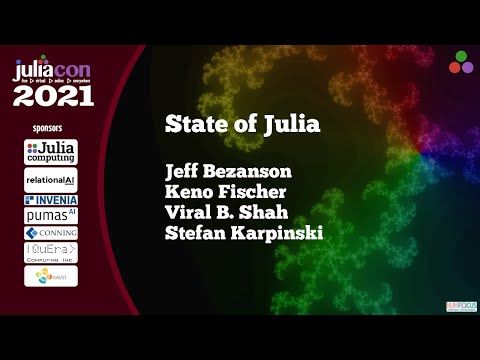Description:
Dive into a comprehensive 43-minute conference talk from JuliaCon 2021 featuring Julia language creators Stefan Karpinksi, Viral Shah, Jeff Bezanson, and Keno Fischer as they discuss the state of Julia in 2021. Explore the threading and compiler roadmaps, including recent achievements and future goals. Learn about efforts to produce smaller binaries, optimize array operations, and extend the compiler. Discover new features like AbstractInterpreter and OpaqueClosure, and understand their implications. Get insights into the state of automatic differentiation, linear algebra developments, and the performance of key packages like CSV.jl and DataFrames.jl. The talk concludes with a Q&A session addressing separate compilation, conditional dependencies, and potential interpreter speed improvements.

The State of Julia in 2021 - JuliaCon Keynote
Add to list
#Programming
#Programming Languages
#Julia
#Mathematics
#Algebra
#Linear Algebra
#Computer Science
#Machine Learning
#Automatic Differentiation
#Memory Management
#Garbage Collection
#Compiler Design
#LLVM